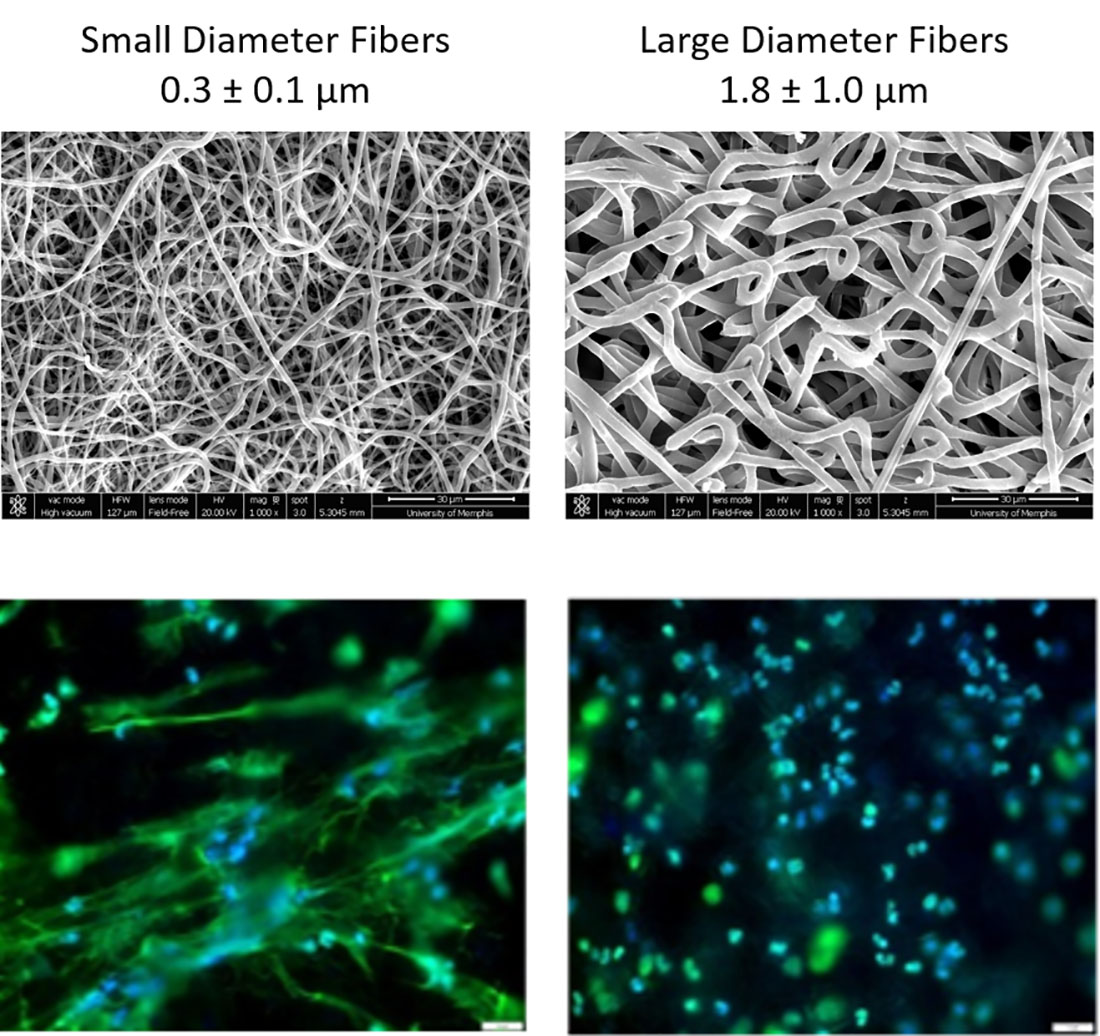
4th Year Grad Student
University of Memphis Biomedical Engineering Tissue Template Engineering and Regeneration Laboratory
Advisor: Gary L. Bowlin, Ph.D., Professor & Herbert Herff Chair of Excellence
Allison Fetz is pursuing a Ph.D. in Biomedical Engineering at the University of Memphis, where she is conducting research on electrospun biomaterials within the Tissue Template Engineering and Regeneration Laboratory, a joint program by the Dept. of Biomedical Engineering at the University of Memphis and the University of Tennessee Health Science Center.
Fetz’s research is focused on developing cost-effective, biodegradable electrospun templates to enhance in situ tissue regeneration. She became interested in this work as an undergraduate research assistant working on a novel project characterizing the innate immune response – specifically the neutrophil response – to electrospun biomaterials. During that time, she realized a passion for research with true translational promise and the potential to improve the quality of life for people around the world. That passion motivated her to continue her work, which has led her to a National Science Foundation Graduate Research Fellowship at the University of Memphis.
Research overview
Fetz’s research is focused on characterizing how neutrophils – the body’s first line of defense – respond to electrospun templates, and how biomaterials can be engineered to regulate the neutrophil to drive and enhance in situ tissue regeneration. Neutrophils have historically been viewed as suicidal killers that clean up the biomaterial microenvironment before dynamic cells, like macrophages, begin wound healing. It is now understood that neutrophils are actually dynamic, altering their responses based on microenvironmental cues with the potential to drive new tissue growth. Fetz’s research aims to develop electrospun templates that present microenvironmental cues to regulate NETosis.
NETosis, a programmed cell death, results in the release of neutrophil extracellular traps (NETs), composed of decondensed chromatin and powerful proteases, to kill pathogens. While indispensable for infection prevention, an overabundance of NETs is associated with thrombosis, fibrosis, and chronic inflammation, which all impair tissue regeneration. To date, Fetz’s research has shown that the abundance of NETs can be regulated on the surface of biomaterials by controlling the composition and diameter of electrospun fibers. When templates are implanted in vivo to down-regulate NETosis, rapid tissue integration is observed, as opposed to the fibrous encapsulation we see with templates that up-regulate NETosis. Additionally, Fetz’s research has shown that the templates can be used as a local drug delivery system to attenuate acute NETosis.
These findings are compelling because they illustrate that regulating the neutrophil response is critical for functional, biomaterial-guided tissue regeneration.
These findings are compelling because they illustrate that regulating the neutrophil response is critical for functional, biomaterial-guided tissue regeneration. Furthermore, the results have diverse applicability in tissue engineering and may help improve the long-term functionally of biomaterials that fail by thrombosis or fibrosis, like small diameter vascular grafts.
Fetz hopes this work will emphasize the importance of designing biomaterials that regulate the neutrophil response, leading to the development of new biomaterials that enhance tissue regeneration beyond what is currently possible.
Career goals
Fetz is aiming to complete her doctorate degree within the next two years. During this time, she hopes to publish at least one first-author manuscript each year, as well as a review paper on neutrophils in tissue regeneration. She has also written an R21 – with the guidance of her advisor – which she plans to submit by the next funding deadline. While she hopes to receive funding, she is viewing the R21 submission and review process as a learning experience, utilizing the feedback to improve her grant writing skills in preparation for her career after graduate school.
While completing her graduate degree, Fetz plans to continue mentoring undergraduate students in the laboratory. “I love watching students develop a passion for research, and I hope I have the opportunity to train another student before I graduate,” said Fetz. “After finishing my studies, I envision myself completing a post-doctoral fellowship to refine my research skills before seeking a position in research in either academia or industry.”
For details on how to submit yourself or a student you know for consideration as a “Student Spotlight” in IFJ, contact Matt Migliore at mmigliore@inda.media or +1 919.459.3754.


